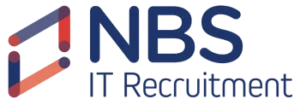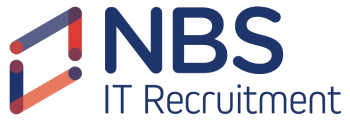Even though it might seem like it, this article isn’t just a rehash of the first part (sequels are never good). Instead, it’s part of an experiment we’re conducting with AI.
I don’t know if it was obvious or not, but the first part of this series was written by ChatGPT.
We did adapt and review it to ensure the accuracy of the information, and we genuinely believe it’s a solid entry that captures the reality of job interviews well.
However, we’ve noticed a lot of dissatisfaction on social media lately about AI-generated content, calling it unoriginal and of little value.
So, we thought of this experiment to test it out: writing the exact same article but 100% human-made to see what adds more value.
So, let’s dive in!
Preliminary Considerations
Time is crucial when interviewing IT profiles. These folks are busy and constantly bombarded with offers, so making the most of the time is key.
We also believe it’s important not to make cold calls but rather agree on a time for the interview (whether it’s a phone call, VC, or in-person) and stick to a set duration.
It’s essential to send some information in advance, so the candidate has an idea of what will be discussed and can show some interest or curiosity beforehand.
Regarding the order of things, opinions vary, but we like to start by clearly explaining the company, the project, and the role. Some might think this influences responses, but if the interview is conducted well, we don’t see it as a significant issue.
This also has the advantage of building trust and starting the relationship off on the right foot, breaking the ice if you will. The person on the other end gets a better sense of what they’re “up against” and has more time to grasp the situation.
At this point, before diving into the actual interview, it’s good to do a quick recap to ensure the information was understood and address any questions.
If your like our approach, you may find a list our current offers here.
That said, we like to focus on the following points:
1) Experience
It’s crucial to understand the real experience of the person in front of you. It’s not just about asking technical questions like, “How many years of experience do you have with X or Y technologies?” but also understanding the context.
Personally, I like to ask about the company’s focus, how many employees it has, the size of the team the person works with, how they’re organized, the org chart, etc.
This provides a lot of information because, regardless of the technology, a person working in a startup environment with a small team or alone will have faced more uncertainty but might have a less systematic approach.
In summary, we don’t work in a vacuum. It’s important to know not just what you do but where you do it. Be prepared for these types of questions and explain them simply.
1.1 / Down the Rabbit Hole
If the position you’re applying for requires specific knowledge, like a particular database or framework, be ready to answer many questions about it. This will set you apart from the rest.
2) Expectations
Life is all about expectations.
I love understanding what exactly the person is looking for, their ideal career plan, their motivation for changing jobs, what’s working and what’s not in their current job…
And of course, salary expectations. We won’t dive too deep here since we have a dedicated article on this topic, but it’s vital for us to understand this point well, and for you to prepare a good response.
3) Skills
Some skills are better demonstrated than explained. Languages, for example, if important for a position, are a good example.
You should be ready to conduct part or all of the interview in English, for instance.
You can continue the normal interview or ask something lighter and more relaxed, like the person’s hobbies. This helps ease any initial tension that speaking in a non-native language might cause.
4) Competencies, That Great Unknown
If you’ve been in the game for a while, on either side, you’ve probably heard of competency-based evaluations. It sounds fancy but has a simple idea behind it.
If a job requires a certain competency, like teamwork, it’s not enough to just say you know how to work in a team.
You’ll be asked specific questions like: When was the last time you had a conflict while working in a team? How did you handle it? How was it resolved?
This, which may seem simple (and it is), provides a lot of valuable information to interviewers and is hard to fake on the spot. You’d need a lot of imagination to invent fictitious situations on the fly.
That’s why having real examples from your experience prepared is a great idea to avoid going blank when the time comes.
This approach should eliminate typical and direct questions about your personality, which are now outdated. “What’s your biggest flaw? That I’m a perfectionist.” Sound familiar?
This should be replaced with questions like: What’s the most difficult situation you faced in the last year? And from there, by pulling the thread, it’s easier to see, through competencies, the areas where you have the most difficulty and how you handle them.
5) Debunking Myths
How many light bulbs are there in New York City?
Although these kinds of questions are asked less frequently, they’re still mental puzzles to see how structured your thinking is. The answer is less important. It’s about seeing your reasoning and mental agility. Don’t stress too much about it and don’t freeze up. Take your time to think about how to approach it and then break it down. If you do that, you’ll ace it.
Lastly, there’s no reason to answer questions that make you uncomfortable.
Some things should have stopped being asked (or should never be) in the last century. No one has the right to ask if you plan to have children or if you have a partner.
It’s also okay if you don’t want to discuss your current salary. Be assertive.
If someone gets upset about it, it’s probably not a good place or not your place. Don’t be afraid. A job interview is a two-way street. It’s about seeing if there’s a good fit on both sides, not just one.
Keep in mind that this article focuses more on initial, screening interviews, not in-depth or hardcore technical interviews.
In a thorough interview, for example, it’s not uncommon to be asked the same things repeatedly to gauge your consistency, even your resistance to frustration.
We’ll leave it here for now, so the SEO gods don’t get mad.
Good luck!
Sharing is caring
Also, you may be interested in...
- What Questions Do IT Recruiters Ask? In the competitive field of IT recruitment, technical recruiters play a crucial role in matching qualified candidates with appropriate job opportunities. Understanding the typical questions technical recruiters ask can help you prepare effectively and improve your chances of landing a job. Below, we delve into the various types of questions IT recruiters ask, categorized into […]...
- The Art of Interviewing A very wise person once said, “Interviewing is like a box of chocolates, you never know what you’re gonna get.” Now, I’d like to reclaim the interview as an art form. It might not be the first kind of art that comes to mind, but having a good conversation, one that’s satisfying for both parties, […]...
- Feedback on, feedback off Today we would like to talk about a LinkedIn recurring topic that causes uproar every time it arises: feedback from job interviews. First of all, and so that there are no conflicts later, let us be clear here: every single person who does a job interview deserves to have the most detailed feedback possible, whether […]...
- Navigating Counteroffers: The Dilemma of Acceptance or Rejection In today’s competitive job market, it’s not uncommon for employees to receive tempting offers from other companies. However, what often follows is a counteroffer from their current employer, a last-ditch effort to retain valuable talent. While these counteroffers may seem flattering and financially rewarding at first glance, they come with their own set of complexities […]...
- Are you open to work? IT Recruitment is a wild ride. Not long ago, a social media storm erupted after a former Google recruiter suggested steering clear of the LinkedIn “Open to Work” green banner. In his view, it screamed “desperation,” making candidates less appealing. In a nutshell, he argued that as a company, you want to feel the exclusivity […]...



